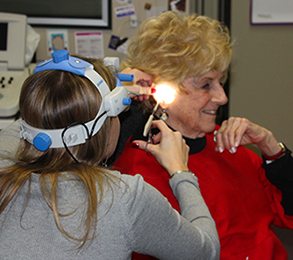
Hearing loss can affect anyone, and at any point during a person’s life. It affects different people to varying degrees and for different reasons, and can be triggered by any number of environmental and biological factors.
Living with untreated loss means difficulties in conversations with loved ones, at social gatherings, and work settings. Untreated, hearing loss makes it challenging to keep up with everyday life. Treatment can lead to a better quality of life by improving personal relationships, reducing anger and frustration, and providing better control of one’s life.
Types of Hearing Loss
Hearing loss is generally categorized by location—that is, what part of the ear is damaged—as well as by severity and age of onset. There are three main types of loss: conductive, sensorineural, and a combination of both, known as mixed hearing loss.
Conductive Hearing Loss
Conductive hearing loss results from sound waves being conducted through the outer and/or middle ear inefficiently. Sound waves are blocked or muffled before they can reach the inner ear, which is still functioning properly. Conductive loss is usually treated medically.
Sensorineural Hearing Loss
Sensorineural hearing loss results from damage to the inner ear (cochlea) or the nerve pathways that transmit sound vibrations to the brain. Sensorineural loss cannot be reversed and is not treatable through surgery or medication, but it can be significantly improved through the use of hearing aids.
The normal aging process and exposure to loud noise can lead to sensorineural loss.
Noise-Induced Hearing Loss results from exposure to loud noises over a long period of time. This is one of the most common types of loss, and, fortunately, it is also the most preventable. Onset is gradual, painless, and frequently undetectable until significant hearing loss has occurred.
Mixed Hearing Loss
Mixed hearing loss is the combination of conductive and sensorineural hearing loss, which can involve damage in the outer, middle, and inner ear simultaneously.
If you suspect you or a loved one has a hearing loss, Contact us for a hearing evaluation.